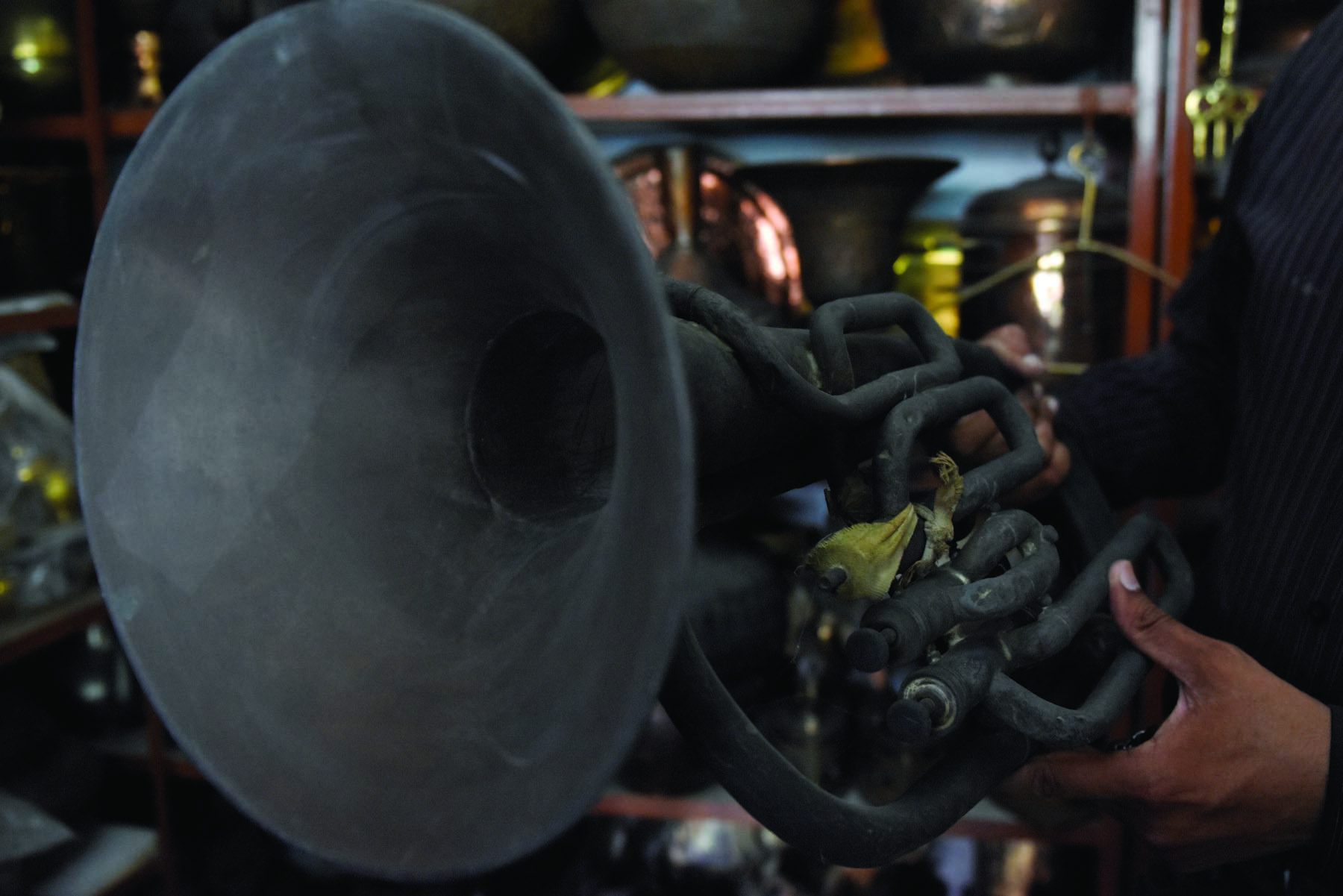Not all that glitters is gold
 |
| Polished and unpolished brass items on display at a shop in Bhabra Bazaar. |
The streets of the city no longer echo with the calls of the Kaliwala who once offered to polish copper and brass utensils at one’s doorstep. Today, silver, glass, stainless steel and non-stick pans and pots have replaced silver and brass kitchenware, traditionally used in Pakistani kitchens.
To get brass and silverware polished and coated, one has to head to the narrow streets of the Bhabra Bazaar. Shops in this bazaar, home to a number of families who migrated from parts of India, still offer the tradition services of Kaliwala, coating, polishing and enamelling brass and silver.
 |
| An unpolished tuba — a brass musical instrument popularly used by military bands. |
These shopkeepers also buy pure brass and silver at Rs300 to Rs400 per kg. While some people come here to sell their brass and silver, others come looking for antiques such as pandan, vases, candleholders, lanterns, jugs and glasses made out of these metals.
A shopkeeper, Abdul Hameed, told Dawn: “Most people no longer buy brass utensils for cooking and serving food because the maintenance is very cumbersome. Brass kitchenware must be coated with tin every two months otherwise, food cooked in them becomes toxic. Today, brass items are mostly used for decoration.”
 |
| The shelves of these shops are lined with hundreds of brass and silver pots, pans, teapots, glasses and plates. These items are sold by people or exchanged them for stainless steel and silver utensils. |
He added, “But stainless steel pots are only good for boiling water or milk. Nothing compares to food cooked in a large brass or silver daig (pot)”.
The art of polishing and coating metals has been in Hameed’s family, for centuries. Once, his father used to go to bazaars and mohallahs to coat utensils but today the family has set up a shop offering these services.
 |
| A 70-year-old worker polishing a brass pot used to cover clay flowerpots. |
Another shopkeeper, Shamshair Ahmed, told Dawn the brass and copper utensils are sold to factories in Gujranwala and melted down to produce electricity wires or to the ordinance factory in Wah for manufacturing cartridges or ammunition.
 |
| An antique water pot with intricate carvings depicting a dancing girl and a drummer. |
 |
| A decorative plate made of brass. |
 |
| A worker in Bhabra Bazaar polishes a decorative vase using a buffer, which has replaced the traditional kalai or tin coating technique, in some shops. |
 |
| Traditional dancing bells or ghungroos made of brass. In olden times, dancers would wear silver or gold bells while brass bells were tied to animal hooves. |
 |
| Many treasures are hidden in dusty corners of the brass shops of Bhabra Bazaar such as these Egyptian style figurines, traditional candle stands and rose water sprinklers. — Photos by Tanveer Shahzad |
Published in Dawn, July 5th, 2015
On a mobile phone? Get the Dawn Mobile App: Apple Store | Google Play


